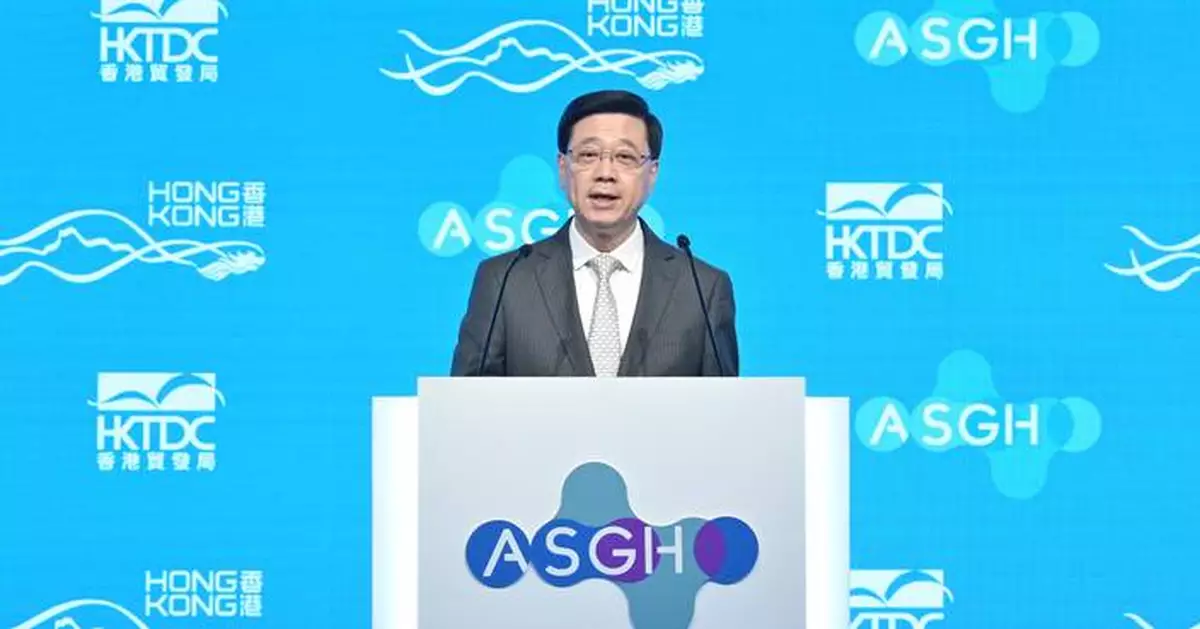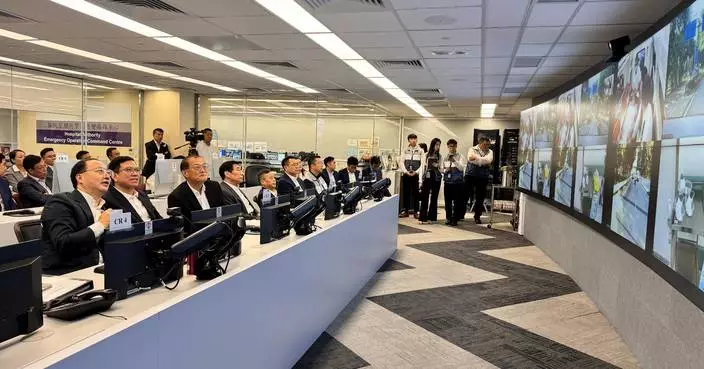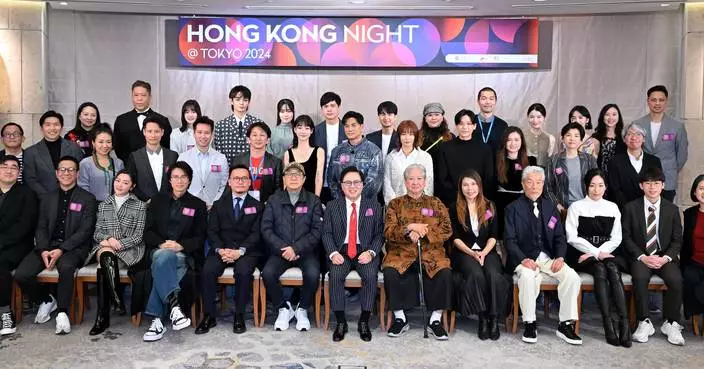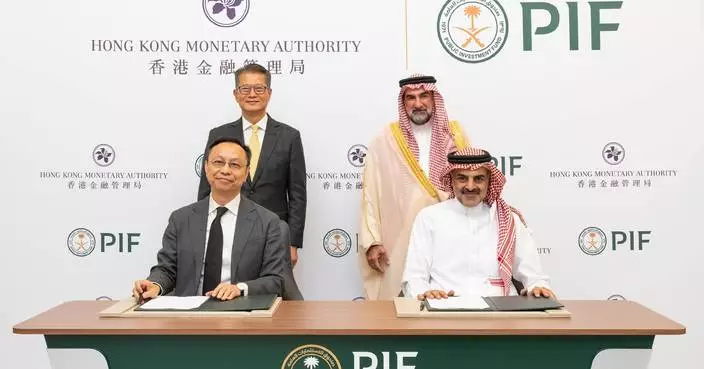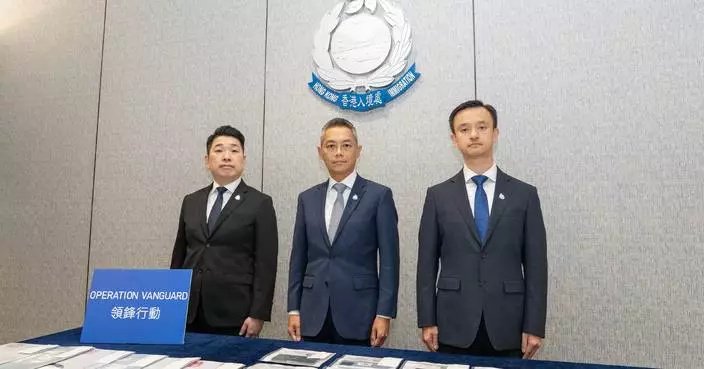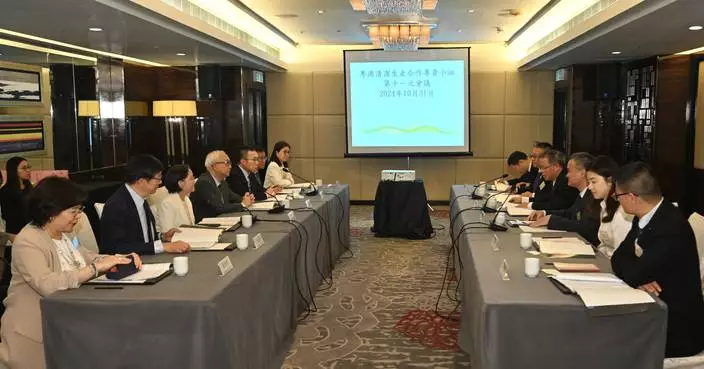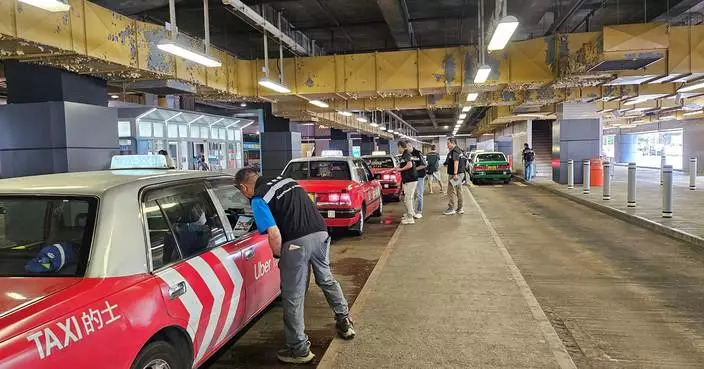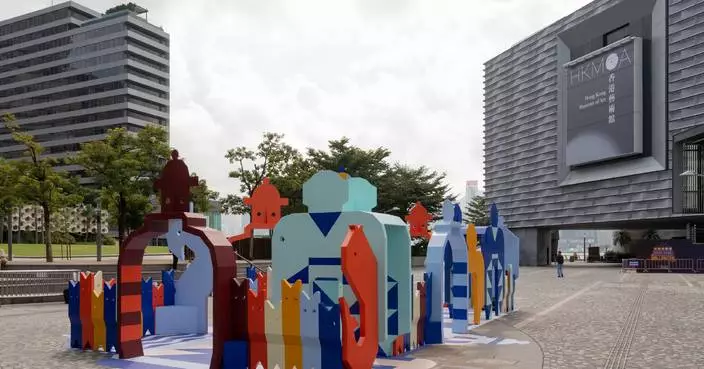Insights and innovations: highlights from the ce's address at the asia summit on global health (exclusive photos and video)
Chief executive of hong kong highlights city's role as global health innovation hub at asia summit, emphasizing collaboration and advancements in medical technology and research.
Following is the speech by the Chief Executive, Mr John Lee, at the Asia Summit on Global Health today (May 16):
Honourable Vice-minister Cao Xuetao (Vice-minister of the National Health Commission), Deputy Director Yin Zonghua (Deputy Director of the Liaison Office of the Central People's Government in the Hong Kong Special Administrative Region (HKSAR), Deputy Commissioner Li Yongsheng (Deputy Commissioner of the Office of the Commissioner of the Ministry of Foreign Affairs of the People's Republic of China in the HKSAR), Dr Peter Lam (Chairman of the Hong Kong Trade Development Council), distinguished guests, ladies and gentlemen,
Good morning. Welcome to Hong Kong, and to the Asia Summit on Global Health.
Health is wealth. Health is an ever-evolving discipline that affects all of humanity. It affects the life of every individual in any economy of the world, big or small, rich or poor, liberal or conservative. Public health is the foundation of society and the very basis for humankind to thrive.
Which is why I'm pleased to note that this year's two-day Summit has attracted some 2 500 industry leaders. You're medical professionals, academics, service providers, heads of pharmaceutical and health-tech enterprises, and many others. You all gather here, in the world city of Hong Kong, to get up to speed on the latest insights, advances and most promising prospects in medicine, and medical technology, in Asia.
And where else than in Hong Kong? Under the "one country, two systems" principle, Hong Kong thrives as an international metropolis that maintains unparalleled connectivity with both the Mainland of China and the rest of the world. Together with the free flow of information, capital, goods and people, our unique advantages give rise to Hong Kong’s prowess in not only finance, commerce and shipping, but also in science, technology and education.
Hong Kong is the only Asian city that has as many as five universities in the world's top 100. Our two medical schools are among the top three in Asia, and are both in the world's top 40. Our universities are also home to some of the world's top 10 schools in the studies of dentistry, nursing, data science, AI (artificial intelligence) and education. Our outstanding medical institutions have nurtured a large pool of multilingual medical professionals who are dedicated to maintaining public health and advancing medical technology.
Technology is a policy priority of the Hong Kong SAR (Special Administrative Region) Government. Thanks to the strong support of the National 14th Five-Year Plan and other national strategies, Hong Kong is rapidly emerging as an international innovation and technology hub.
We are collaborating with the cities in the Guangdong-Hong Kong-Macao Greater Bay Area, particularly Shenzhen. Last month, the Hong Kong-Shenzhen I&T (innovation and technology) Park held a partnership launching ceremony, with some 60 world-class companies and research institutes taking part. The Hong Kong-Shenzhen I&T Park, I must add, is part of the Shenzhen-Hong Kong Science and Technology Innovation Co-operation Zone, an area which radiates beyond Hong Kong's boundary with our neighbouring city of Shenzhen.
The Park's first buildings will open, progressively, from year's end. And life and health technology will be a major focus of the Park’s research and development work.
With that in mind, allow me to update you on our initiatives and ongoing progress as an international medical innovation hub.
To expedite the registration of new drugs, our new "1+" mechanism came into effect last November. The mechanism allows for the registration of specific new drugs that are supported with local clinical data, with the approval from only one reference drug regulatory authority. It will attract more drug development in Hong Kong and increase clinical trials here.
It will also strengthen our drug evaluation ability and expertise, as well as software and hardware. Most importantly, it will ensure that all pharmaceutical products approved for registration fulfil stringent safety, efficacy and quality requirements.
In addition, Hong Kong, China has acceded to the International Council for Harmonisation of Technical Requirements for Pharmaceuticals for Human Use. This will ensure that we continue to keep pace with the latest regulatory drug developments.
We are now working to establish the Hong Kong Centre for Medical Products Regulation. The long-term objective is to establish an internationally recognised authority that registers drugs and medical devices, under the "primary evaluation" approach. This means directly approving applications for registration of medical products based on clinical trial data.
As for clinical trials, we will set up the Greater Bay Area International Clinical Trial Institute, later this year in our Co-operation Zone with Shenzhen. It will serve as a clinical trial support centre for biomedical and research institutions, co-ordinating clinical trial resources for Hong Kong in the public and private healthcare sectors.
These and other efforts will accelerate the clinical use of new drugs and medical devices, driving the development of industries related to medical product testing.
The Hong Kong SAR Government is also enhancing I&T support across the upstream, midstream and downstream sectors to fuel life and health science advances.
The 16 life and health-related R&D (research and development) centres established in our InnoHK research clusters are yielding impressive research outcomes.
We have earmarked US$1.3 billion to further support life and health technology.
With our long-standing advantage as a trading hub, we are focused, too, on moving research outcomes on to applications and commercialisations.
To promote the transformation of R&D outcomes, we launched a US$1.3 billion RAISe+ Scheme last year. It helps university research teams take forward their projects.
For the downstream sector, we will launch a US$1.3 billion New Industrialisation Acceleration Scheme this year. It will help companies in life and health technology, and other strategic fields, develop in Hong Kong.
Education and research drive innovation and technology. Which is why, last year, I announced plans to develop Hong Kong as an international, post-secondary education hub. Realising that ambition will help ensure a creative and continuing stream of future talent.
We welcome scholars and researchers from around the world, and encourage international collaboration with our distinguished institutions.
Our Research Endowment Fund has reached US$6 billion. This supports research projects, collaborative research funding schemes and longer-term research of strategic value to Hong Kong's development.
Our universities are particularly active in healthcare-related research projects. Last year, more than 200 individual research projects in the medicine and biology fields received public funding support of over US$30 million.
Ladies and gentlemen, Hong Kong is committed to supporting and developing medical innovation in every way we possibly can.
Collaboration and partnerships fast-track innovation.
And that, I'm confident, can begin right here, over these next two days of forums, plenaries, dialogues and networking sessions. A wealth of medical research and development intelligence and insights, together with the latest I&T, and the experts driving them: all here for you, at this year's Asia Summit on Global Health.
For that, and much more, I'm grateful to the Hong Kong Trade Development Council, organiser of this Summit together with the Hong Kong SAR Government.
Ladies and gentlemen, I wish you all a rewarding two days at the Summit. And, let me add, this important gathering is just one of the 16 high-profile events taking place during our third International Healthcare Week, which runs right through the rest of May.
That's a lot to take in, a medical wellspring, but I urge you to make time, too, to discover today's Hong Kong, and all that our world city can offer you. The good life, day and night: it's everywhere you look in Hong Kong.
Thank you.
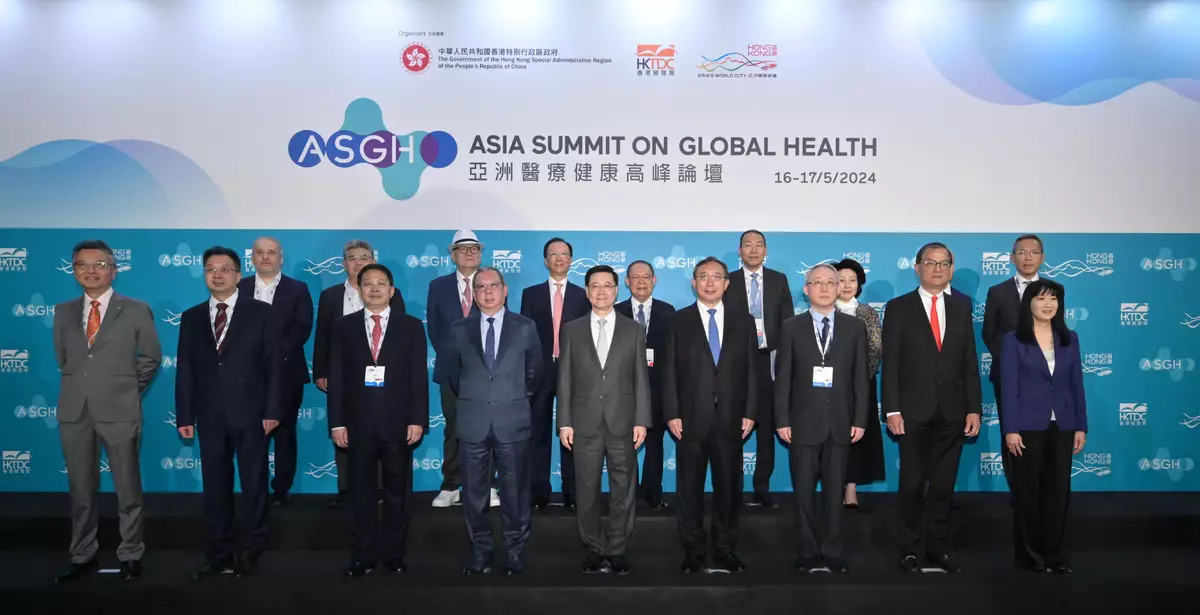
Speech by CE at Asia Summit on Global Health Source: HKSAR Government Press Releases
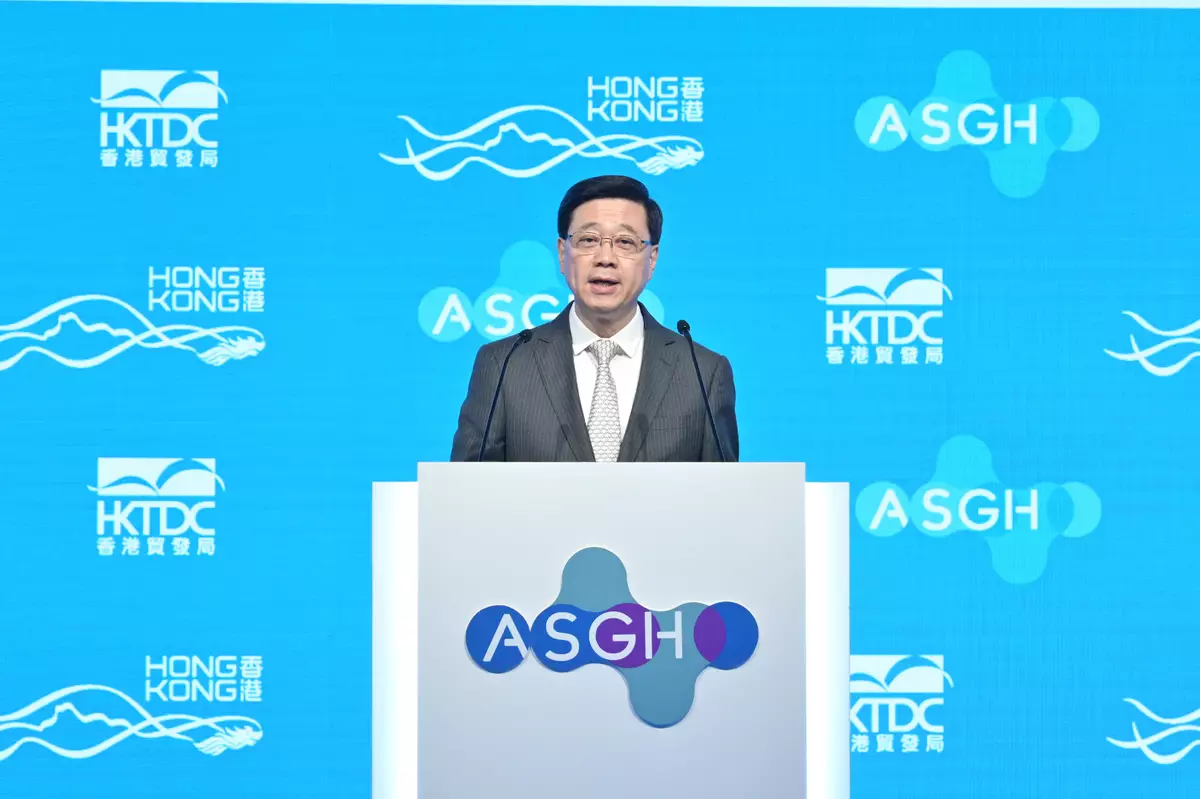
Speech by CE at Asia Summit on Global Health Source: HKSAR Government Press Releases

Source: AI-generated images


